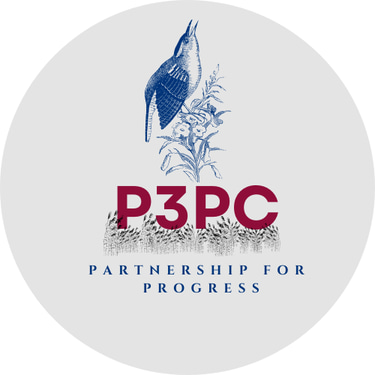Leaders bring us together and keep us sturdy
Leaders bind us together and lead us through the mechanism of Trust.
James Murphy
9/1/20252 min read


As citizens of the US, we all share a common thread: we are all part of a representative democracy. This means we have the right to choose who leads us at all levels of government, from local municipalities to the federal government. While this shared right unites us, it's our personal experiences, beliefs, and identities that often create a sense of separation and lead us to align with different leaders and philosophies.
Why We Feel Aligned with Certain Philosophies 🤝
We choose to align with certain individuals and their philosophies for a variety of complex, often subconscious reasons. It's not always a purely rational decision based on policy positions. Our choices are deeply influenced by our identity and our personal experiences.
* Social Identity and "Us vs. Them": A major factor is our social identity—the groups we belong to. This can include our race, religion, gender, age, socioeconomic status, or where we live. Political science and psychology research suggest that we have a strong, innate tendency to favor our "in-group" and view those outside of it as the "out-group." This can lead to an "us vs. them" mentality, where we are more receptive to information that confirms our existing beliefs and more critical of opposing views.
* Values and Morality: Our core values and moral foundations play a huge role. For example, some people prioritize individual liberty and personal responsibility, while others prioritize community, equality, and social justice. These fundamental values, which are often shaped by our families and upbringing, form the bedrock of our political beliefs and draw us to candidates who reflect them.
* Psychological and Emotional Factors: Our decisions are also driven by our emotions and personality traits. Studies show that people can be influenced by a candidate's perceived personality, trustworthiness, or even their physical appearance. We may be drawn to candidates who project a sense of strength, stability, or empathy, depending on what we value most.
The Perception of Difference and Division 💔
While we have a shared commonality as citizens, we often feel separated from our neighbors because of these same factors. The perception of difference is fueled by:
* Political Polarization: In recent years, political identities have become more strongly aligned with social and cultural identities. Our political party allegiance can now feel more central to who we are than our race, religion, or ethnicity. This has led to deeper social divisions, where political disagreement can be perceived as a personal attack on our identity, making civil discourse more difficult.
* Echo Chambers and Information Silos: The way we consume media and interact online contributes to this sense of separation. We are often exposed to information that reinforces our existing beliefs, creating "echo chambers" that make it difficult to understand or empathize with opposing viewpoints. This can lead to a belief that our political "side" is not only right, but that the "other side" is fundamentally wrong or even immoral.
* Individualistic vs. Collectivist Mindsets: A core tension in American society is the balance between individualism and collectivism. Some believe that society's progress comes from protecting the rights and freedoms of the individual, while others believe that the well-being of the community should take precedence. These competing philosophies can lead to vastly different ideas about how government should function, from the role of social safety nets to the regulation of business.
In the end, our choices are a blend of rational assessment and deeply rooted psychological and social factors. We seek out leaders who we believe will meet our needs, but our definition of "needs" is often filtered through the lens of our personal experiences and the groups we identify with, which can lead to a greater sense of division.
Connect
Partnering for a better Municipalities everywhere.
#IMPACT
#SmartCommunity
© 2025. All rights reserved.
